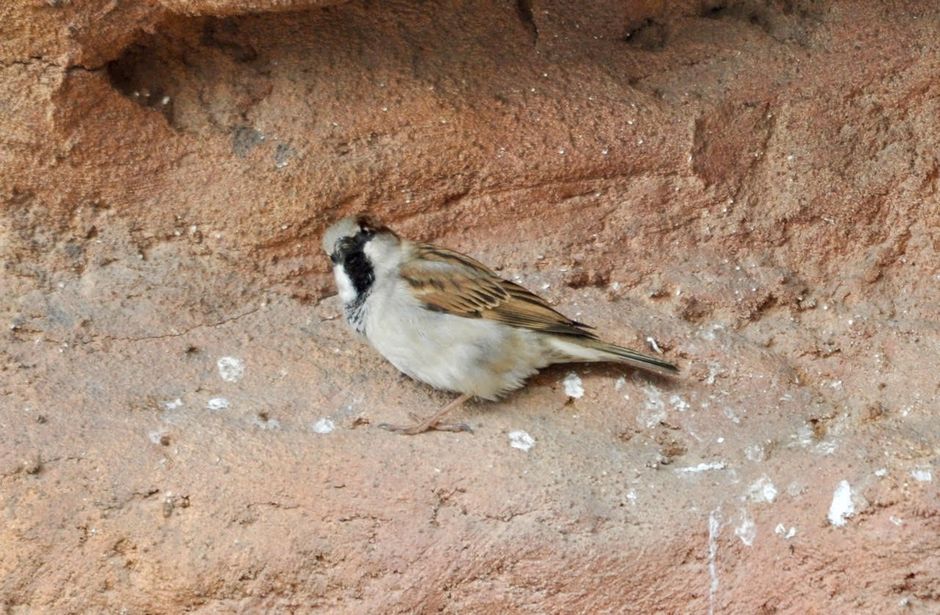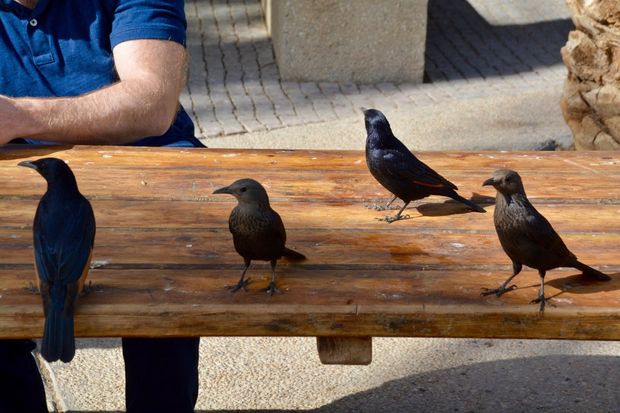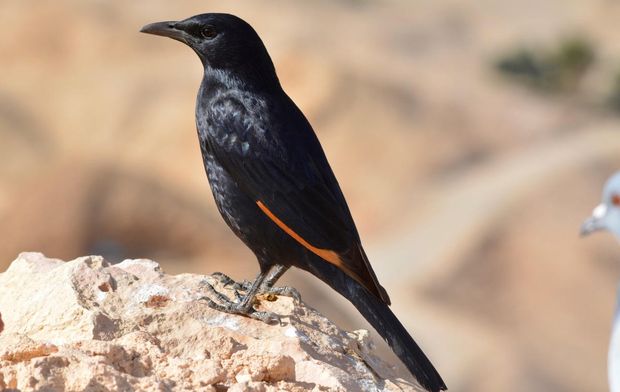The Bible only divides birds into two groups: clean and unclean.
 Photo: Antonio Cruz.
Photo: Antonio Cruz.
Like cages full of birds,
their houses are full of deceit;
they have become rich and powerful. (Jer. 5:27)
Are not two sparrows sold for a penny?
Yet not one of them will fall to the ground outside your Father’s care.
And even the very hairs of your head are all numbered.
So don’t be afraid; you are worth more than many sparrows. (Mt 10:29-31)
The Spanish word “pájaro” normally refers, in current popular language, to any small bird, whereas in zoology it always denotes migratory species. The Bible only divides birds into two groups: clean and unclean.
This is especially on account of religious and ritual considerations, but it also reflects the behaviour and etiology of these, in most cases, flying animals, and their eating habits.
Before their slavery in Egypt, the only domesticated birds the Hebrews had were pigeons. Afterwards, however, they began to cage other species, either for food or as songbirds (Jeremiah 5:27)
In Israel there are still many birds that live happily near human settlements, like sparrows, chickadees, finches, goldfinches, greenfinches, wagtails, among others.
Some of these birds were eaten in ancient times, while others were used as songbirds or for children to play with and take pleasure in (Job 41:5).

[photo_footer] Photo: Antonio Cruz. [/photo_footer]
There are solitary birds too, common in rocky mountains, which also settled on the tops of tall buildings, like the Blue Rock Thrush (Monticola solitarius), the males of which have a beautiful blueish plumage (Psalm 102:7).
One of the most common and emblematic species in the desert regions of the Holy Land is the Tristram’s Starling (Onychognathus tristramii). It is an endemic species in Israel, Jordan and parts of Saudi Arabia. In fact, these are the only parts of the world where they can be seen, and only in arid, desert regions.
Their precise name comes from the English reverend Henry Baker Tristram, who, in the 19th century, became interested in the natural history of the Bible and, therefore, in the fauna of Israel. He wrote, among other works, two emblematic volumes on this subject: The Natural History of the Bible (1867) and The Fauna and Flora of Palestine (1884).
Now many Tristram’s Starlings can be seen, with their distinctive orange wing tips, flying above the heads of tourists or pecking at breadcrumbs on tables in restaurants near the Dead Sea.
They are daring and skilful, as they know that humans constitute an inexhaustible source of food and will do them no harm.
It might well be that these agile birds approached the Master, two thousand years ago, during the many days he spent in the desert. Perhaps they did so out of instinctive curiosity, waiting for him to offer them some kind of food.

[photo_footer] Photo: Antonio Cruz. [/photo_footer]
It occurs to me that these dark-coloured birds could reflect by their behaviour the fact that Jesus was, and still is, the source of all life, not only of physical life but also spiritual, eternal life. So Christ challenges all of us to approach him, and to stop turning our backs on him.
The first verse mentioned at the top of this article: Like cages full of birds, their houses are full of deceit; they have become rich and powerful, is framed within Jeremiah denouncing those who mortgaged the houses of the poor.
Riches acquired through injustice had made the rich fat and powerful, at the expense of the poorest, the weak and the orphans.
The reign of Solomon contributed to increasing the gap between rich and poor, eliminating the middle class altogether. However, God did not forget the needy, and sent the prophet Jeremiah to remind the people of their responsibility in that regard.
The second verse refers to the words of Jesus: Are not two sparrows sold for a penny? Yet not one of them will fall to the ground outside your Father’s care. And even the very hairs of your head are all numbered. So don’t be afraid; you are worth more than many sparrows. (Mt. 10:29-31).
Here we find two arguments which stress God’s providential care for his messengers. If the Creator cares for these birds, so tiny and insignificant, and, what’s more, has even numbered the hairs of our heads, how will he not know the needs of His servants and take care of them too?

Las opiniones vertidas por nuestros colaboradores se realizan a nivel personal, pudiendo coincidir o no con la postura de la dirección de Protestante Digital.
Si quieres comentar o